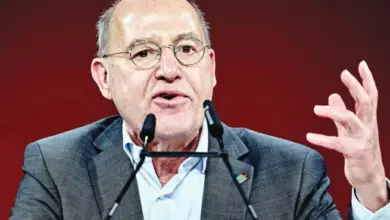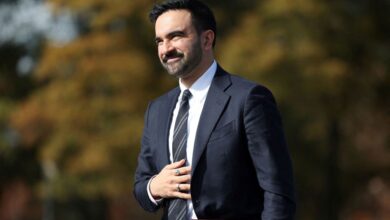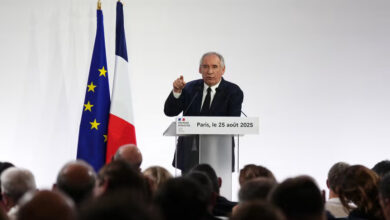The revolution is political and poetic.
The political comes the morning after, although it's articulated in slogans, drums and chants during the days of mobilization, and even long before that, in the daily sighs and dreams of the oppressed. Although we may adduce all kinds of “factors” to the eruption of the revolution, we cannot use them to explain its timing. The sudden synergy of hundreds of thousands of people chanting loudly and in unison, their joy drowning their aches as they inhale the air of freedom, defies rational explanation.
Great creative works, like Handel’s symphony The Messiah or Melville’s Moby Dick were made after periods of deep gloom. In the Arab world, revolution has poured out of the deep well of despair and loss of confidence.
The late Nizar Qabbani, the love poet of the Arab world, who also penned much political poetry, wrote “the Arabs have died.” Mahmoud Darwish said “Egypt is not in Egypt.” But pain and suffering were as fertile as Egypt’s soil, green as Tunisia itself. They have reawakened the spirit, opened the portals of the body and the body politic. They have ushered Egypt back into Egypt and Tunisia into Tunisia. You could see the metamorphosis and hear it in the performance of the crowds and their words, in the free wheeling slogans and the rhyming couplets.
They rendered acts of poetry–cleaning the streets, regulating traffic, protecting the national museum, guarding houses, breaking bread with someone–even more poetic. These mundane acts became inspiring moments, like that of a poem, spawning a new spirit, free of the dust that had settled on the conception of work and on those who perform it day after day. Writing a poem and engaging in a revolution are both acts of self-discovery.
The revolution dignifies the ordinary, and elevates it, just as poetry transforms common words into rhythms and meaning.
Never will the privileged person who swept leftover food, cigarette butts and plastic containers into a pile in the street think of the street sweeper as lowly again–just like what a poem about a street sweeper does, it dignifies the person and the work.
Never will the person who helped formed a ring around thugs to prevent agitated comrades from meting out spontaneous justice forget the meaning of magnanimity. A poem that is not imbued with a spirit of forgiveness is an ersatz poem.
Never will the person who guarded the museum go by it again thinking it is just another building. Standing guard by the house of antiquities is like a poem about lost objects, about lives vanished; it keeps them alive for as long they last.
The words that revolutionaries make are poetry, even if they are not meant to be. Language under authoritarian regimes rusts, turns dull, loses its edge and luster. Revolution restores to words their truthfulness, meaning, even magic. The first word of the revolution was “The people want to bring down the regime.” It is the people who want, not the ruler. The declarative statement is economical, uses the active verb, and announces the expiry of the old order. It is in itself an act, a performance.
The first three words, “the people want,” are a variation on a famous line from an Arabic poem by the Tunisian Abu Al-Qasim Al-Shabbi, “If the people one day want life/ fate will surely comply.” This was the slogan of the revolution of Tunisia; it migrated to become that of Egypt’s revolution. Instead of the slogan “Islam is the solution,” the Egyptian revolutionaries coined, “Tunisia is the solution.” Ben Ali and Mubarak seemed fated to remain in control of Tunisia and Egypt. Now fate had to bend, comply with what people wanted, with their will. Mubarak and his regime had to follow in the footsteps of Ben Ali.
Al-Shabbi’s poem, which he composed while Tunisians were fighting French colonialism, is memorized by Arab school children; those who had not learned it before did so after the Tunisian revolution. It was repeated in every oppositional Arab news medium and forum and became, for a moment, the non-secret thread that held the Arab people together.
Perhaps the most eloquent and poetic slogan, shorter than a Japanese haiku, is the imperative Irhal (Leave). It was addressed to each of the two presidents. It could be repeated in many capitals and small towns across the Arab world.
The slogans of the masses proliferated, capturing the demands, frustrations, joy, humor and evolution of the movement. You could not keep track of them. Their chronology and diversity could be used to reveal the evolution of the demands and the mosaic of the participants. Some of the placards should be framed and displayed for a long time to come. The recordings archive the memories of the revolution that will inspire future generations to one day also rise against tyranny.
“A man in his forties/ thin/ handsome today/ stroking his black beard/ steps firmly on the ground/ tells the TV camera/ with a budding smile/ that today/ for the first time in his life/ he felt he was Egyptian.”
Now, Ben Ali and Mubarak are gone. Their patriarchal portraits are being effaced, their cronies sought for justice, and their symbols torn. But Egyptian politics are still in limbo and the revolution is unfinished. Poetry will have to stay on alert to ensure that people’s yearnings and exuberance are translated into a new dawn.




